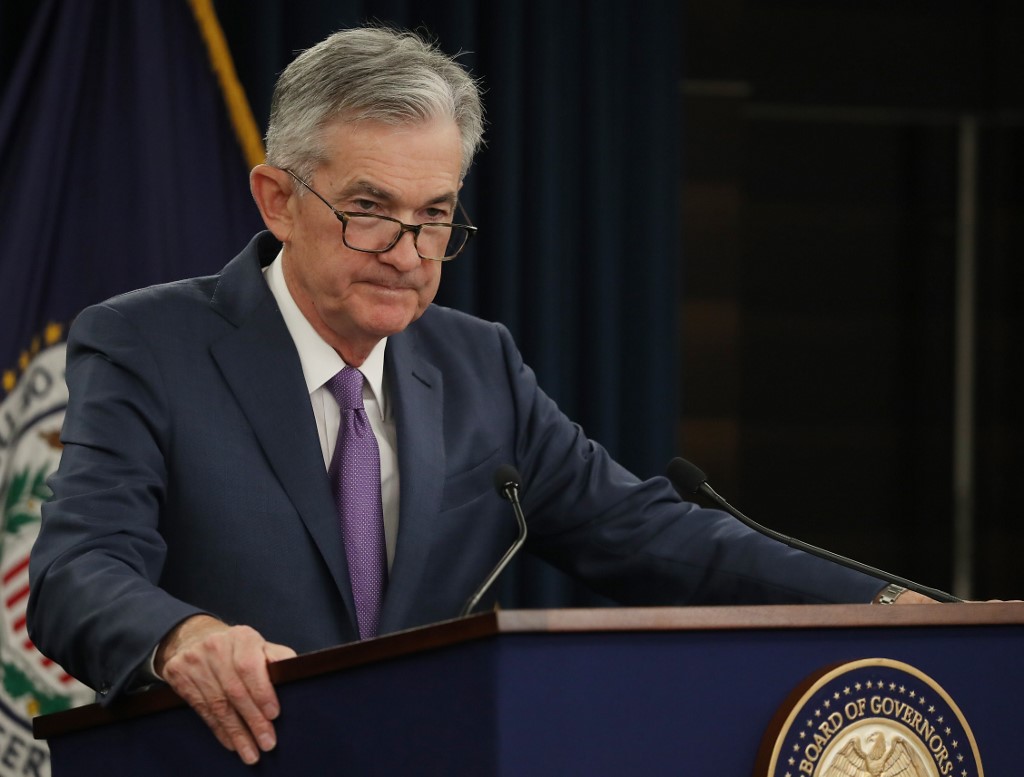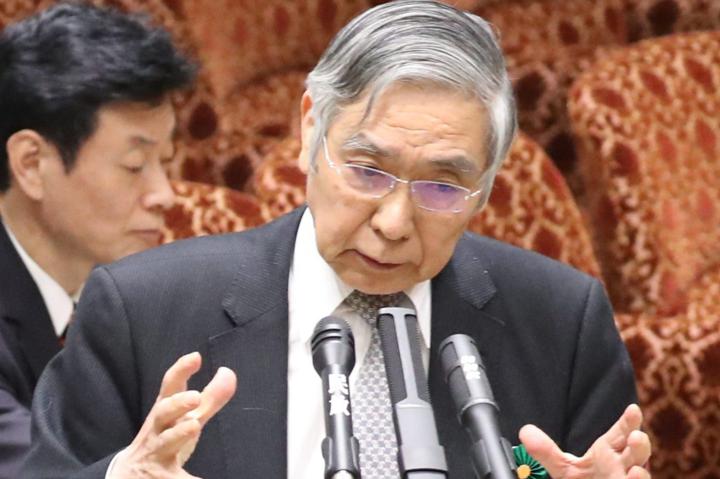The US Federal Reserve and other central banks unveiled emergency measures to prop up the coronavirus-battered global economy, as the three worst-hit European countries recorded their deadliest days of the pandemic.
The virus has upended society around the planet, with governments imposing restrictions rarely seen outside war-time, including the closing of borders, home quarantine orders and the scrapping of public events.
After the Covid-19 pandemic began in China late last year, Europe has in recent weeks emerged as the biggest flashpoint and the death toll on the continent surged over the weekend.
Italy on Sunday announced 368 deaths over the previous 24 hours, the worst single-day toll for any country of the crisis and far exceeding the deadliest day in China recorded in February.
Spain and France registered 183 and 29 new deaths respectively on Sunday, also their worst one-day tolls.
Globally, there have been more than 6,400 confirmed deaths from the virus.
With the virus infecting nearly every sector of the global economy, concerns are growing the world will be catapulted into a damaging recession, leading to stock markets enduring horror losses and wild swings.
Second rate cut
The US Fed attempted to stem the panic with drastic measures announced before Asian markets opened on Monday, slashing its key interest rate to virtually zero in its second emergency rate cut in less than two weeks.
“What’s happened with the Fed is phenomenal news,” US President Donald Trump said Sunday at a regular briefing of his coronavirus task force. “I can tell you, I’m very happy.”
But markets were less euphoric, the futures markets on the Dow Jones Index predicting another sharp move downwards and Asian stocks starting the day on the back foot.
“The good news is that the targeted fiscal response will become more aggressive. The bad news is that all the world’s major economies will continue to effectively lock down any normalcy of economic activity for weeks if not months,” said AxiCorp’s Stephen Innes.
China on Monday provided more evidence of Covid-19’s dire economic impacts, announcing factory output had contracted for the first time in nearly 30 years.
Industrial production shrank 13.5% in January and February, the government said, which was when China was enduring its most severe travel curbs and quarantine orders to contain the virus.
BoJ to double ETF buy-ups
The Bank of Japan also unveiled a series of emergency monetary policy measures on Monday to shore up the world’s third-largest economy, as the coronavirus pandemic threatens a global recession.
In a meeting brought forward by two days, the BoJ said it would double its annual capacity to purchase exchange-traded funds and Japan real estate investment funds, the latest global central bank to take emergency action.
The moves sent Japanese markets whipsawing, with the Nikkei-225 initially surging 2% but then falling rapidly back into the red as traders digested the statement.
The bank said it had decided unanimously to “actively” purchase ETFs (exchange-traded funds) and J-REITs (investment funds tied to Japanese real estate) with an annual upper limit of 12 trillion yen ($112 billion) and 180 billion yen respectively.
Seiichi Suzuki, senior market analyst at Tokai Tokyo Research Institute, said: “What’s big is 12 trillion yen of ETFs buying, which means one trillion yen each month. What investor could ignore this?”
-
![Kuroda]()
BOJ Governor Haruhiko Kuroda
“It was quite a drastic step,” Suzuki said. “Those who wanted to buy jumped on the occasion.”
Previously, the bank was buying a maximum of six trillion yen of ETFs and 90 billion yen of J-REITs per year.
The BoJ said it would also introduce a new operation to provide loans against corporate debt and raised its annual limit for corporate bond purchases by one trillion yen to 4.2 trillion yen.
But it left its main interest rate unchanged at minus 0.1% and also kept its upper limit for purchasing government bonds at 80 trillion yen.
The Japanese economy was tottering even before the coronavirus struck, with growing fears of a recession. “Japan’s economic activity is likely to remain weak for the time being, mainly affected by the outbreak of COVID-19,” the BoJ said.
GDP for the October-December quarter contracted by 1.8%, with consumer spending hit by a hike in consumption tax last October from 8% to 10%, and concern has grown that consumption will be hit even harder as people put off big purchases due to coronavirus fears, while the pandemic is also predicted to have a huge impact on exports.
Concern about the Olympics
On top of this looms the possibility that the Olympic Games, scheduled to open on July 24 in Tokyo, could be postponed or cancelled.
Estimates vary on what that could cost Japan, which is spending an estimated 1.35 trillion yen (US$12.67 billion) on Tokyo 2020. Any change to the Olympic schedule would have a huge impact on tourism – Japan was banking on 40 million visitors in 2020.
Economists at research firm Nomura already predict a 0.7% contraction in GDP for the 2020 calendar year, but warn that could be up to 1.5% if the Games are cancelled.
Meanwhile, in much of western Europe, normal life is at a standstill, with France ordering all non-essential businesses closed and Spain banning people from leaving home except to go to work, get medical care or buy food.
In the US and many countries, consumers have stocked up on food and other necessities amid concern they could be living at home for a couple of weeks and going out little.
But in the Netherlands, cannabis smokers were seeking to keep calm and carry on queued up outside Dutch “coffee shops” on Sunday after the government ordered their closure to beat the outbreak.
“For maybe for the next two months we’re not able to get some weed so it should be nice to at least have some in the house,” said Jonathan outside a “coffee shop” in The Hague.
Heartwarming scenes
There was pandemonium at some airports as travellers scrambled to get home with countries increasingly slamming shut their borders to prevent the virus spreading.
In the US, passengers complained of massive queues as staff battled with new entry rules and stipulations on medical screening, leading some to worry they were exposing themselves to the virus in the crowds.
Joanna, a British student in Cyprus, said she was scrambling to get home, fearful of further restrictions on movement. “I think if I stayed here and if it was a lockdown, I think I would be really upset, the fact that I could not go home and see my family,” she said.
There were continuing signs of improvement in China, with only four new cases recorded in Wuhan – where the virus was first detected in December – although imported cases rose.
And there have been heartwarming scenes around the world as people attempt to lift spirits.
In Switzerland, where cases nearly doubled to 2,200 on Sunday, Geneva residents applauded, whistled and rang bells from their balconies and windows to thank health workers on the frontline.
Images of Italians singing from their balconies have also gone viral and the choir of Stockholm’s Katarina church decided to livestream their performances online.
“People need something to cling on to, I think, and something to listen to,” said chorister Birgitta.

























